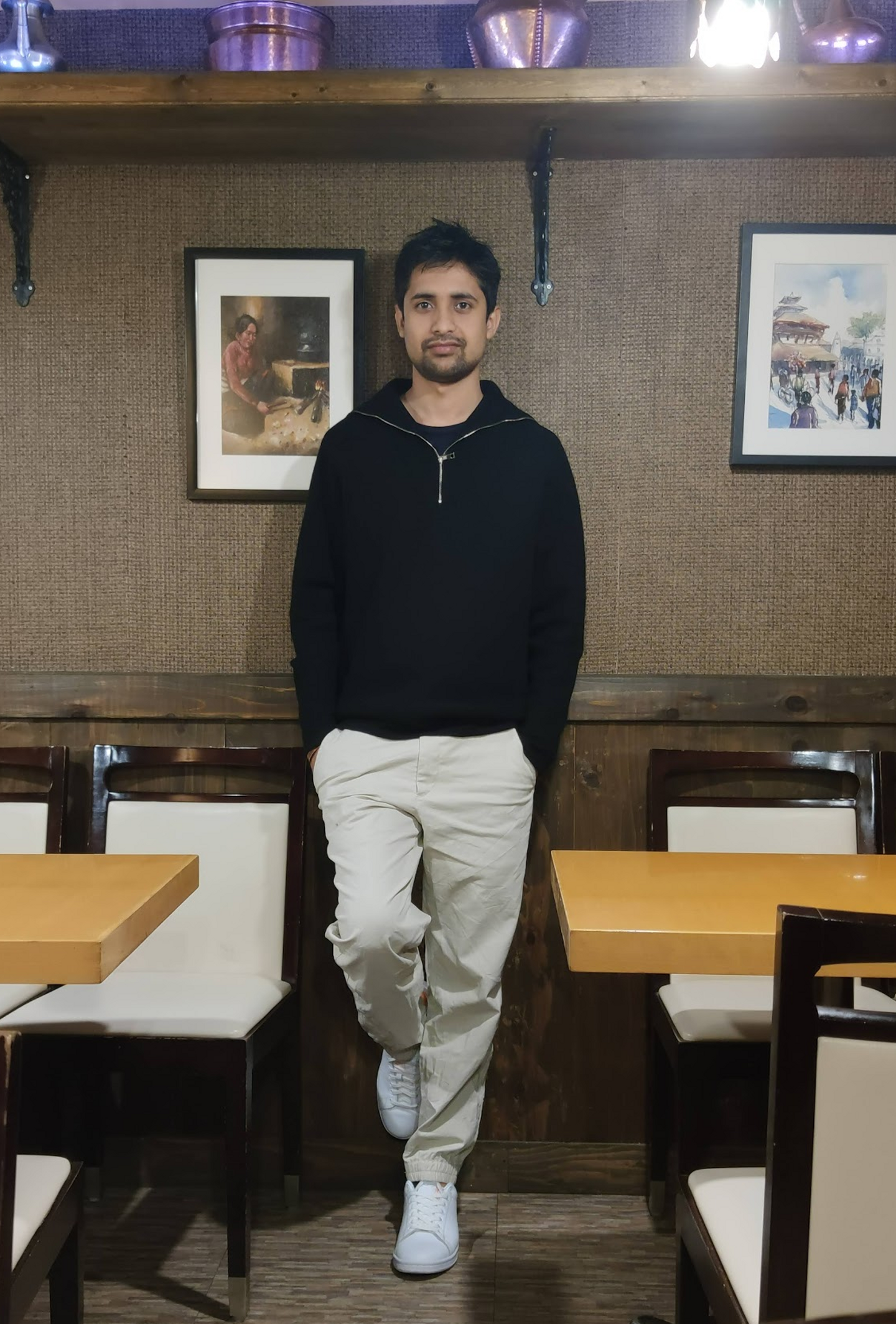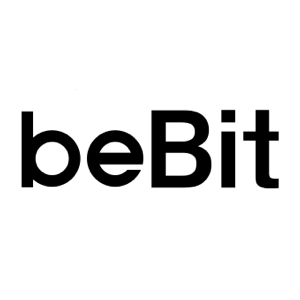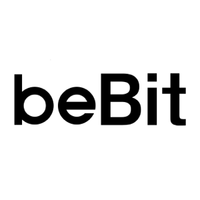多くのネパール人エンジニアを育て上げた大学講師から開発エンジニアへ。日本に来た理由 、USERGRAMの魅力、ビービットで働く意味。 /Former Lecturer who helped train many Nepali engineers, Now A Seasoned Software Engineer ー Why he came to Japan, the magic of USERGRAM, and Why he choose beBit.
*English follows Japanese
ビービットでは、様々な職種で多彩な背景を持った社員が活躍しています。
今回は、ネパール出身でソフトウェアエンジニアとして活躍しているビノドさんに、これまでの経歴やビービットに入った理由、現在取り組んでいるプロジェクトなどについて聞きました。

ビノド・ラジ・パンディ (Binod Raj Pandey) ソフトウェア・エンジニア
ネパール出身。大学卒業後、工科大学でアシスタント講師としてソフトウェアエンジニアリングの基礎を教え、その後、ソフトウェアエンジニアに転身。複数のIT企業で経験を積み、2019年にビービット入社。現在はフロントエンドとバックエンドの両方を担当し、USERGRAM (ユーザグラム) の開発に貢献している。
もっと知りたい、もっと学びたい
―ビービットに入ろうと思った理由を教えてください。
決め手はいくつかあったのですが、そのうちの一つが日本に対する興味です。私は以前から日本のテクノロジーに関心があり、いつか日本で働きたいと思っていました。日本の製品は品質が高いことで知られていますが、ネパールでも丈夫に作られているものがあれは、きっと日本製だろうと考える人が多いんです。多くの場合それは事実なので、おもしろいですよね。
そんなわけで日本での就職先を探していたところ、ビービットがエンジニアを募集していると知りました。すぐさまウェブサイトをチェックし、USERGRAM (ユーザグラム) が、クライアントのユーザー行動を可視化していると知り、驚いたと同時に、とても興味を持ちました。更に深く知りたくなり、いくつかブログを読んだところ、USERGRAMはユーザーの行動を分析してユーザーを理解するのに役立ち、成長戦略を策定する際にさらなる利益をもたらしてくれることが分かり、もっと知りたい、学びたいと思ました。その後すぐ応募し、今に至ります。
―ビービットに入社する前は講師をされていたそうですが、なぜソフトウェアエンジニアに転身しようと思ったのでしょうか。
母国ネパールの有名大学の講師としてキャリアをスタートさせましたが、実はここに来る前に2社のIT企業でエンジニアとして働いていた経験があるんです。また、私は電子通信工学の学士号を持っているのですが、学士号を取得した当時から、ハードウェアよりもソフトウェアの方が面白いと感じていました。それに、オンラインでほとんどすべてのことを自ら学び、スキルアップすることができますしね。
―そうだったんですね。ビービットに来る前に取り組んでいたプロジェクトについて教えていただけますか。
いくつかのプロジェクトを手がけましたが、その中でも特筆すべきは、車両を追跡するソフトウェアのプロジェクトです。時間、緯度、経度、高度など、定義されたパラメータを記録するプロダクトで、それらの指標をもとに、車両の速度、加減速、コーナリング、走行時間などを評価していました。そして、収集したデータをもとにユーザースコアを作成し、自動車保険会社が適切な保険料を提示するのに役立てていました。とても楽しい経験でしたね。そのプロジェクトには1年半ほど携わりました。
―複数のIT企業で働いた経験があるということですが、ビービットはどのような違いがありますか。
他と比べて、ビービットは安定していて、柔軟性があり、規律もしっかりしていると思います。前の職場を悪く言うつもりはありませんが、そこでは、週末も含めて深夜までの変則的な勤務があり、あまり理想的な環境とは言えませんでした。それに対して、ビービットでは柔軟なシフトで働くことが出来るので、今の環境は気に入っています。逆に、ビービットのような先進的な企業で働いたことがなかったので、最初は緊張していましたが、すぐ会社の目標に向かって自分の力を発揮できるようになりました。
―リモートでのお仕事はどうですか。以前と比べ何か変わりましたか。
少しずつコツを掴んでいると思います。通勤する必要がないので、時間とエネルギーの節約になりますし、なにより柔軟に働くことが出来ています。変わったことは特にないですね。午前中にスクラムミーティングを行い、その後シェアリングセッションがあります。そこでさまざまなソリューションやその実装、特定の手法についての賛否を議論します。プルリクエストが保留になっている場合はそれを検討することもあります。通常、私たちは複数のリリースを予定しているので、これらのセッションを行うことでタスクの優先順位付けをし、合理化を図っています。

都内にあるお気に入りのネパールレストランでポーズを決めるビノドさん。趣味は温泉に行って美味しいものを食べること。チームプレイが得意で、地元ネパールではサッカーを楽しんでいたそう。
簡単にいかないことに魅力を感じる
―今はどんな仕事をしていますか。
フロントエンドとバックエンドの両方を担当し、必要に応じてdev-opsも行っています。わたしの主な仕事はバックエンドなのですが、現在はプロダクトデザインチームから割り当てられた、USERGRAMの追加機能の開発に取り組んでいます。お客様からのフィードバックや開発者自身の意見が反映されることもあります。機能が開発されると、それらをテストしデプロイします。簡単にいかないことも多いのですが、そういうところに魅力を感じますね。
―簡単にいかないところに魅力を感じる、とはどういう意味でしょうか。
例えば、過去にお客様とプロダクト設計チームの両方から、カスタムのモジュールを作ってほしいというリクエストがいくつかありました。その結果、私たちはさまざまなビジネスに合わせてモジュールを作ってきました。それってクリエイティブだし、時には挑戦的でもありますよね。ユニークで刺激的なものに取り組める可能性が常にあるので、私たちは気を緩めることなく、それぞれのスキルを高めたり、新しいことを学ぶことができるんです。
―それは興味深いですね。USERGRAMにはどのような機能があるのか、具体的に説明していただけますか。
現在は、「絞り込み除外条件機能」を開発しています。多くの企業が自社プロダクトの拡大・販売のためにマーケティングを行っています。そして、マーケティングの成功のためには、特定の行動を行っていないユーザーの行動を抽出し、その行動を行わなかった理由を分析することが重要となっています。その際に欠かせないのがこの「絞り込み除外条件機能」です。これまでの「行動絞り込み機能」では、探索コストの高さから特定の行動をしたことしか条件にできず、特定の行動をしなかったという条件は使えませんでした。しかし、「絞り込み除外条件機能」を使えばそれが可能になり、特定の広告から来たものの、購入しなかった、あるいは対象となるページを訪れなかったユーザーの行動を可視化することができます。このようにして、特定の広告がどれだけ効率的だったかをすぐに結論づけ、改善することができるのです。これはほんの一例ですが、すばらしい機能だと思います。
―それはすばらしいですね。その前はどのようなことに取り組んでいましたか。
以前はユーザーのデータを処理してインポートする仕事をしていました。ユーザーデータには4つの種類があります。最初のものはクライアントのウェブデータで、リアルタイムストリーミングを用いています。クライアント企業のサイトに計測タグを埋めると、すべてのユーザー行動が追跡され、システムに保存されます。スマホアプリとクライアント企業のウェブ上以外の行動データ(オフラインデータ)とトレジャーデータの仕組みを使って取得しているデータが残りの3種類です。すべてにApache Cassandraを使用しています。
―現在はどのようなスキルを使用していますか。
バックエンドにはJavaを、フロントエンドにはVue.jsとTypeScriptを使用しています。ミドルウェアにはRabbitMQ、リアルタイムストリーミングにはApache Kafkaを使用していて、すべてをAWSで運用しています。
―今後習得したいスキルがあれば教えてください。
いろいろありますが、機械学習をまず一番に習得したいですね。ビービットはビッグデータを持っていますし、このスキルが役に立つことは間違いありません。いまのところ私は基本的な知識しかなく、プロダクトで実際に使った経験はありませんが、今後数年間で深めたいスキルのひとつです。もうひとつは、マイクロサービス・アーキテクチャです。正確には、Google gRPCを使ってみたいですね。この新しい技術は、1秒間に10億回のリクエストに対応でき、RESTの27倍の速度を実現します。いますぐにというわけではありませんが、いつか使ってみたいと思っています。
―今後の目標を教えてください。
いま使っているスキルのエキスパートになって、数年後には、テクニカルリードやソリューションアーキテクトとして働きたいです。長い道のりではありますが、自分にとって必要なことだと思うし、だからこそビービットで働くことに意味があるのです。ビービットは最先端の技術を取り入れており、開発者にとって魅力的な技術に取り組むことができます。先ほども言いましたが、現在私はフロントエンドとバックエンドを担当し、サーバー、オートメーションなど複数のプロジェクトに取り組んでいます。そのお陰で成長し、エンジニアとして経験を積むことが出来ています。今まで歩んで来た道は正かったと断言できます。
―ビービットはどんな人が向いていると思いますか。
スキルがあって、そして何よりも向上心がある人が向いています。チャレンジすることを恐れず、自分の殻を破っていける人にとってはとても良い環境です。たとえ短期間であっても多くのことを学べると思います。
思慮深く、明確な目標を持ち向上心に溢れるビノド さん。エンジニアリングに対する真摯な姿勢が伝わり、とても印象的でした。
ビービットの開発部門では、ビノドさんと一緒にチームを作ってくれる仲間を募集しています!
(取材・執筆協力:Hardeep Parshad)
【インタビュー 一覧】
“ユーザー中心”のサービスを育てるスピリットが、ここにはあった。インタビュー #1 エンジニア上杉さん
ビービットとの出会いは、仲間と一緒にサービスを作る楽しさを教えてくれた/インタビュー #2 エンジニア 安保さん
ソフトウェアエンジニアリングは日々進化している。常に新しいドアを開け、熱意を持って挑戦し続けたい/インタビュー#3 エンジニア ニラヴさん
新卒2年目のエンジニアに聞く ビービットへ入社した3つの決め手、きつかった研修期間、顧客を支えるやりがい、今後の目標 / インタビュー#4 エンジニア 山崎さん
ビービット プロダクト開発チーム 副責任者が語る 変化を恐れない会社が唯一変えない「理念」/ インタビュー#5 開発副責任者 岡さん
重工メーカーの研究職から開発エンジニアへ。メンバーの成長を支え、目指すは「最高のユーザー体験の提供」/ インタビュー#6 エンジニア 池田さん
「凡庸な毎日を変えたかった」ネパール出身のエンジニアに聞く、リスクを冒す理由、モチベーションの源泉、挑戦してみたいこと。/ インタビュー #8 エンジニア サガールさん
Former Lecturer who helped train many Nepali engineers, Now A Seasoned Software Engineer ー Why he came to Japan, the magic of USERGRAM, and the reason for working at beBit.
At beBit, engineers with distinguished backgrounds are working unitedly. As we take pride in our elite team, today we sat with one of our engineers, who play his part splendidly — Mr. Binodraj Pandey. We asked Mr. Pandey about his previous and current experiences, projects, and future yearnings.
Binodraj Pandey - Software Engineer
Native to Nepal. After graduating in 2014, he worked as an assistant lecturer for a year at the Institute of Engineering under one of the reputed colleges in Nepal — teaching software engineering 101. Soon this stint exposed him to the realm of software development and that was the sweet beginning of the coveted journey. After gaining experience in several IT companies, he joined beBit in 2019 and currently in charge of both frontend and backend, contributing to the development of USERGRAM.
If you are ambitious you can learn anything.
What made you join beBit?
There were a few determinants. For one thing, the location. I was fascinated by the Japanese tech world and wanted to work there. As Japan is known for its quality products, we have an odd notion in Nepal. If the product is durable, we assume it might be Japanese, which is true in many cases and funny in a way. But, yes, I was looking for an opportunity and, luckily, there was an opening at bebit.
I promptly skimmed through their website and halted at USERGRAM — one of the products. I was amazed by the features and how it empowers businesses to visualize the activity of their users. The whole thing got me curious, so I delved deeper and read a couple of blogs to content my curiosity. I knew, straight away, that USERGRAM helps businesses to visualize and analyze their user's activity and behavior which further benefits while formulating new strategies to grow their business. However, I was not sure how they were doing it but wanted to know and learn. So in a heartbeat, I applied and had an interview with Mr. Nishioka, CTO. I was fortunate enough to clear all stages and, here I am.
But weren't you a lecturer before you joined beBit — any specific reasons for this transition?
No, I worked with two IT companies before I came here. But yes, indeed, I started my career as a lecturer at one of the reputed colleges in Nepal. I have a bachelor’s degree in Electronics and Communication Engineering and during my bachelor’s, I realized software is more interesting than hardware. Plus, you can learn practically everything online from everywhere. So I did and, right now, pretty happy with how the whole thing played out.
Good for you! Now, can you tell me about what kind of project you have worked on in the prime phase of your career?
I worked on a few. There is one that is worth mentioning — vehicle tracking software. A product for keeping a tab on defined parameters such as time, latitude, longitude, altitude, etc., these metrics were further used to evaluate the speed of the vehicle (how smooth), acceleration or braking (hard/soft), cornering, time of driving (rainy time, day or night), etc. Then based on the collected data, we generated user scores — which helped the vehicle insurance company to offer the applicable premium insurance. It was a fun experience. I worked on this project for almost one and a half years.
beBit confers a conducive environment — flexible but disciplined
Since you have experience with two different companies, how do you differentiate beBit from them?
In my opinion, beBit is more stable, flexible, and disciplined and not to badmouth my prior employer. But there, we were working odd hours, till midnight more than often, even on weekends. Clearly, not an ideal environment. Au contraire here we are working on a flexible shift. Despite being in a foreign country, facing a completely new environment, I love it. Contrarily, I was nervous initially, as I never worked for an advanced company like beBit before, but soon my nervousness turned into excitement. And in no time, I started to do my bit, now committing towards the company’s goal. It just shows the conducive environment that beBit confers.
Alright — since everyone is working remotely, how do you compare working from home to the office? And, what has changed?
To be honest, I am getting the hang of it. I mean, no commuting saves time and energy. But, it is mostly good because of the flexibility we have. And, what changed? Nothing at all — just like before, I start my day at 11 am, have scrum meetings, discussing assigned tasks, etc. Then, at 2 pm, we have our daily sharing session. Here we discuss different solutions, their implementation, shortcomings in our approach, pro and con of specific methods and stack. Sometimes review PR requests if pending. Usually, we have several releases planned, and others are in the queue — these sessions help immensely in streamlining and prioritizing the tasks.
Great! Now, talking about your profile — Software developer, what does this entails, and what are you working on right now?
It entails both the front-end and backend and sometimes in the dev-ops as needed. Primarily I work on the backend tasks. But, right now, my team and I, working on USERGRAM additional features that are being assigned to us by the product design team. Sometimes it comes from the customer feedback and the developers themselves. Once they are developed, we test and deploy them. Often straightforward, but I won’t say it is your average ad hoc profile, there is an ambiguous factor to it, and honestly, I love it.
What do you mean by ambiguous, and in what context?
See, in the past, we had several requests from both clients and the product designing team to create bespoke modules — they seem creative, exciting, and at times, challenging, of course. Consequently, we have created these modules to go with different businesses. In that context, there is always a possibility to work on something distinct and novel, which pins us to our craft and learning, concurrently keeps us on our toes.
Interesting! Can you explain any one of the features in detail?
Sure, right now, I am working on filter exclusion. As we all know, many businesses use advertisements to expand and market their products. But it is often disappointing as they do not have enough data to overhaul their marketing strategy if it is not yielding. Now, this is where USERGRAM acts as a boon, and filter exclusion is a vital part of it.
So far, we only had an inclusion feature, which implies businesses can track only those users who have done some activities on the page. But, they cannot shadow or visualize the activities the other ones who haven't. But now, with filter exclusion, it is possible. The businesses can visualize the users' activities who came from the specific advertisement but didn't purchase or visit the targeted page. That way, they can quickly conclude how efficient their particular ad is and, this is just a single business use case example — isn't it great?
Yes, it is! You are working on these modules right now, but what about your earlier days?
Back in the day, I worked on processing and importing user's data. To provide you a context — there are four kinds, first one, client’s web data, real-time streaming. The tracking module tracks all the user activities and stores them in the system. Mobile offline and treasure data are the other three types. We have used Apache Cassandra for all of that.
What tech stack have you used here?
For the backend, I have used Java, and for the frontend — Vue.js and TypeScript. We are using RabbitMQ for middleware and Apache Kafka for real-time streaming. We are deploying everything on AWS.
Any specific technology you want to learn in the coming years?
Yes, there are many. However, Artificial Intelligence and its subset — machine learning tops the list, and who knows, it can come in handy as beBit has big data. At this point, I only have basic knowledge, no experience with an actual product, so definitely one of the techs that I will explore in the coming years. Another thing is microservices architecture. To be precise, I want to employ it using Google gRPC. This new technology can serve a billion requests in a second, making it 27 times faster than the REST. I will start with these at some point in time, but not right away.
Excellent! But, if I may, what kind of action you’re looking for — I mean, a few years down the line, where do you see yourself?
I want to advance my skills in the current technologies that I am using, and hopefully, be an expert one day. And perhaps after a few years down the line, work as a technical lead or solution architect. I know it is a long-haul process, but also inevitable. That is why working at beBit makes sense. Here, we are working on cutting-edge technology, which allows me to work on intriguing concepts. As I said earlier, I am tackling several things and working on the frontend/backend, server, automation, etc. It helped me with my growth and made me a seasoned engineer. So clearly, I am on the right track.
What type of person do you think is best suited for beBit?
Who are skilled — more importantly, ready to learn. And, if you don't shy away from challenges and willing to get out of your shell. You see, it has been two years, but I was smart enough to realize this in the very beginning that even if I work here for a short period, I’ll be able to learn way more than what I have, thus far and, by the way, so can you.
Mr. Pandey is a grounded and goal-oriented individual who holds high ambitions for learning. In mere two years, he became a significant part of the team. He acts with the utmost decorum, and his sincerity towards his craft is commendable.
beBit's development team is looking for people to join Mr.Pandey and his team!
(Interviewed and written by Hardeep Parshad)
【Other Interviews】
"There is a spirit of developing user-centered services here" Interview with engineer Osuke Uesugi.







